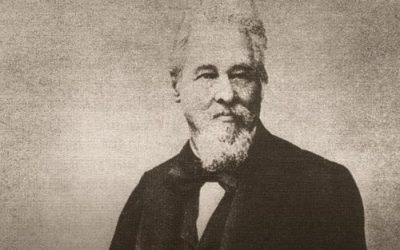1806-1894 – Nobert Rillieux is famous for revolutionising the sugar industry.
Norbert Rillieux was born in New Orleans, Louisiana, on 17 March 1806. His parents were Vincent Rillieux, a white plantation owner, and Constance Vivant, a freed black slave. Rillieux’s father was also a successful engineer and inventor.
His father allowed him access to private Catholic schooling as a child, which was uncommon for children of his heritage to have at the time, free or enslaved. He quickly realised his son’s brilliant mechanical ability and sent him to Paris to study engineering.
In Paris, he taught and wrote scholarly papers on the steam engine and steam processes that were well received by European scientists. At 24, He became the youngest teacher at the University, teaching applied mechanics. It was this educational foundation of technology, physics, mechanics, and engineering that he would apply to his evaporator invention.
Rillieux developed the theory of the multiple-effect evaporator at this time, according to P Horsin-Deon, a French sugar technologist, engineer, and secretary to Rillieux. However, it took him 12 years and several unsuccessful attempts before he successfully developed a multiple-effect vacuum evaporator that could be used on a large scale.
Norbert later returned to the United States to get funding for his new invention. During the 1800s, the process was slow, costly, and inefficient. Over the course of a decade (1834-1843), Rillieux developed and patented his “multiple-effect evaporator”. The device controlled heat more effectively, prevented sugar from getting burned, improved quality, and protected the safety of the workers.
Norbert’s invention was a huge success. He was able to increase production and produce finer white sugar providing a huge reduction in cost and labour. His system was later adopted by factories from Cuba and Mexico, and its steam principles found a much broader application in manufacturing industries for condensed milk, soap gelatine and glue products.
Norbert’s original innovation exists today, helping to produce glue, soap, milk, and more.






Leave a Reply